Jul
17
2010
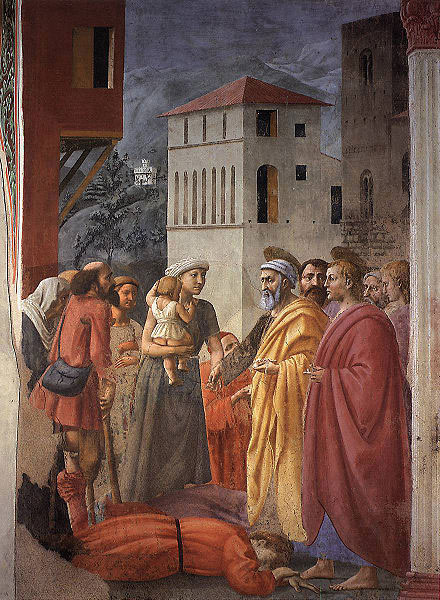
But each one is tempted when he is drawn away by his own desires and enticed. Then, when desire has conceived, it gives birth to sin; and sin, when it is full-grown, brings forth death. (James 1:14-15)
The structure of God’s work in the world finds its origin in His trinity: Word, Sacrament, Government (Discipline). Often in the prophets, the man of God is given a sign which is a type of a greater event to come. The prophet is the sacrament that mediates the Word of discipline to the People.
Continue reading
Comments Off | tags: Abraham, Acts, Atonement, Balaam, Communion, Genesis, Isaiah, Jezebel, Judas, Moses, Replacement Theology, Totus Christus, Typology | posted in Biblical Theology, The Last Days
Mar
29
2010
or The Self-Maledictory Oath
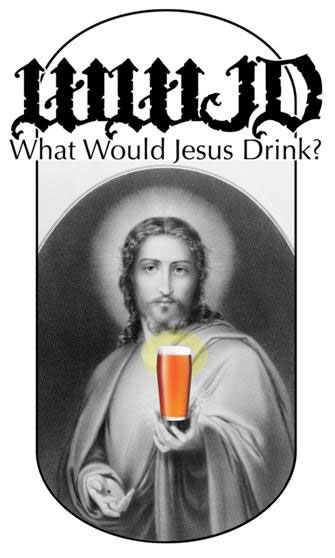
For thus says the LORD God of Israel to me: “Take this wine cup of fury from My hand, and cause all the nations, to whom I send you, to drink it. “And they will drink and stagger and go mad because of the sword that I will send among them.” Then I took the cup from the LORD’s hand, and made all the nations drink, to whom the LORD had sent me…” (Jeremiah 25:15-17)
The content of this post has been revised and included in Bible Matrix II: The Covenant Key.
__________________________________________________________
[1] See Sacramental Doses of Death.
[2] This is the execution of a Covenant curse, so those who fought against Jerusalem were people under the Covenant.
[3]Contrary to popular opinion, I believe that the divided animals substitute for the Canaanites rather than for Abraham, but the birds do substitute for Abraham. The birds are the head of the Covenant, and He is never crushed. Only the serpent’s head is crushed. This also relates to the linen left in Christ’s tomb. The Jew-Gentile body was divided in Abraham and reunited in Christ. See Pass-over and Pass-Through.
[4] See Three Babylons.
[5] This also relates to the disappearance of the pure Covenant-head, the Ark of the Covenant. See The Lost Ark.
Comments Off | tags: Abraham, Ark of the Covenant, Babylon, Covenant Theology, Ezekiel's Temple, Gethsemane, Jeremiah, Numbers 5 | posted in Biblical Theology, The Restoration Era
Mar
3
2010
Band of Brothers – 1
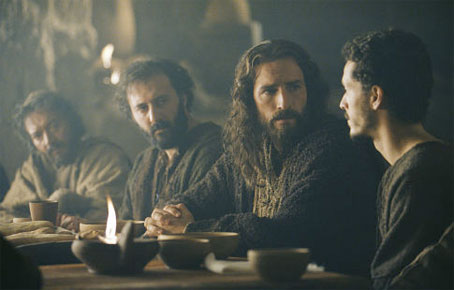
It’s a temptation to water down the Bible to make it palatable for “normal” people (let alone watering it down for ourselves!). Problem is, before we know it, what we are teaching bears little resemblance to the actual Bible. The Bible has odd corners where we think it should be smooth, and it says nothing about many things we moderns deem crucial. So let the hungry eat cake.
Many youth leaders, and even pastors, present the Almighty as being desperate for our company. Although He is not needy, what He desires is more than relationship. He wants “friends,” but His definition of this word is not ours. Even if we don’t go down the track of using the actual phrase “heavenly buddy” in our teaching, we are still further off the biblical mark concerning friendship with God than we might have thought possible.
Continue reading
Comments Off | tags: Abraham, Compromise, David, Joseph, Masculinity, Saul | posted in Biblical Theology, Christian Life
Feb
11
2010
 God took on a body, from the dust, in Adam. A trillion particles of inanimate, dead stuff pulled together and organised into the most complex system in the cosmos, an organic machine capable of feats we are yet to discover.
God took on a body, from the dust, in Adam. A trillion particles of inanimate, dead stuff pulled together and organised into the most complex system in the cosmos, an organic machine capable of feats we are yet to discover.
Adam, as Covenant head, also took on a “body.” A Divine Handful of flesh and bone, dead or dying by any human measure, organised into a being more palatial and lavish than any male eye is worthy to behold.
Continue reading
3 comments | tags: Abraham, David, Film, goliath, Herod, Nimrod, Satan, The flood, Totus Christus, Totus Diabolus | posted in Biblical Theology, The Last Days, Totus Christus
Feb
5
2010

The Pharisees’ call for miracles from Jesus was a sign of immaturity. As the story of the patriarchs demonstrates, the growing maturity of the people of God is illustrated in less of a need for proofs. The Word is enough. Miracles are occurring around the world in places where the gospel is new and faith needs assurance. In the West, genuine miracles of this nature seldom occur. Is it due to a lack of faith or a call to greater faith? We have had the Scriptures forever, and the childish desire for (and manufacturing of) miracles, betrays a reversion to childhood.
Continue reading
2 comments | tags: Abraham, Genesis, Jacob, James Jordan, Joseph, Maturity, Spiritual Growth | posted in Biblical Theology, Christian Life, Quotes
Jan
31
2010
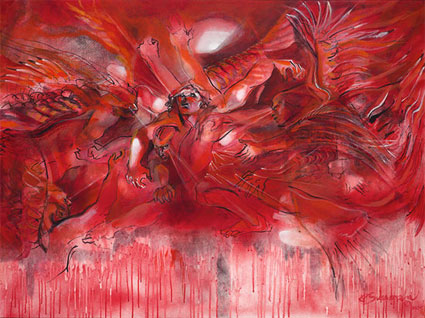
How are we to understand the need for Jacob to wrestle not only with Laban, but also with the angel of the Lord?
Abraham was given a miraculous son and his greatest test was to face the loss of that promised son. Jacob’s test was a similar loss of what had been gained through unity with God by Covenant. Both Abraham and Jacob had learned that they were not lords themselves but stewards under the Lord. Their authority was delegated to them. They were “Word incarnate.” Theirs was the authority of a head servant. They were Covenant vassals, and what was truly precious was their faithful relationship to God under this Covenant. Continue reading
Comments Off | tags: Abraham, Covenant Theology, Genesis, Jacob | posted in Biblical Theology, Totus Christus
Jan
13
2010

“Peter came to Him and said, ‘Lord, how often shall my brother sin against me, and I forgive him? Up to seven times?’ Jesus said to him, ‘I do not say to you, up to seven times, but up to seventy times seven.’” (Matthew 18:21-22)
Genesis 4 seems to contain two “feast” cycles. Near the end of the first, at “Atonement”, the Lord set a mark upon Cain to protect him from vengeance. As on the Day of Covering after Adam’s sin in Eden, the full weight of the law was withheld. Cain complained that his “liability” was greater than he could bear. Cain was covered but he still went from the presence of the Lord, as the goat which carried the sins into the wilderness. It seems Cain despised mercy.
Just as the Lord and the Land were two witnesses against his crime, he now fled from the face of the Lord and the face of the Land. Only the High Priest could face God, standing in the Veil, the firmament between heaven and earth. Abel was the true facebread, the authorised priest. [1]
Continue reading
6 comments | tags: Abel, Abraham, AD70, Atonement, Azal, Cain, Esau, Genesis, Herod, Jacob, Lamech, The flood | posted in Biblical Theology, The Last Days
Jan
1
2010
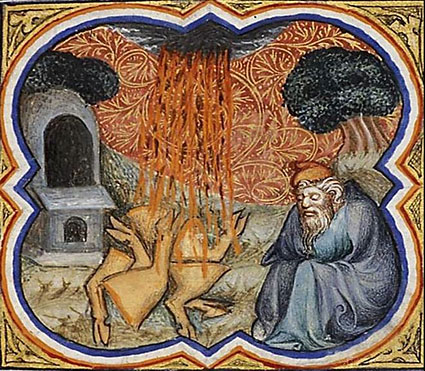
Luke 4:30 “But he passing through the midst of them went his way…”
Why did Abraham not cut up the birds?
The structure of the passage has a “Passover“. Abraham acts as a human firmament by chasing away the “Covenant curse” birds of prey, then falls into a deep, dark sleep.
Matching this chiastically at step 6, the smoking firepot and blazing torch pass through the divided pieces at Atonement. But not through the birds, obviously.
Did the clean birds represent the Covenant people, just as the scavenging vultures represented the Covenant curses? What sins did the sacrifice atone for?
Continue reading
Comments Off | tags: Abraham, Genesis, James Jordan | posted in Biblical Theology
Sep
4
2009

The Insiders
“For the eyes of the LORD move to and fro throughout the earth that He may strongly support those whose heart is completely His.” 1 Chron. 16:9
The Bible was written to be understood by word-search software, or by believers who think that way. There are many expressions and phrases that are used repeatedly—very deliberately—so that the reader makes connections.
Continue reading
Comments Off | tags: Abraham, Ascension, Canaanites, cherubim, Covenant curse, Esther, Ezekiel, Joshua, Moses, Satan, Typology | posted in Biblical Theology, Christian Life
Sep
2
2009
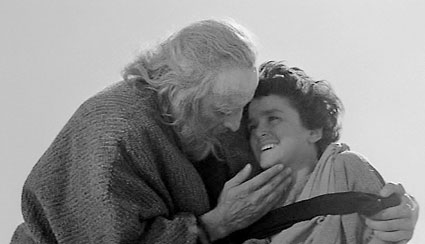
“Look now toward heaven, and count the stars if you are able to number them.” And He said to him, “So shall your descendants be.” And he believed in the LORD, and He accounted it to him for righteousness.
—Genesis 15:5-6
Abraham didn’t sleep in on the day he was to take his beloved son, his only son, to Moriah, kill him and offer him as an ascension. He got up early. By this stage in the narrative, Abraham had been tried and tested many times, but this seems just a little too keen.
Continue reading
Comments Off | tags: Abraham, Covenant Theology, Doug Wilson, Faith, Hebrews, Isaac, Martyrdom, Peter Leithart, Ray Sutton | posted in Christian Life



































